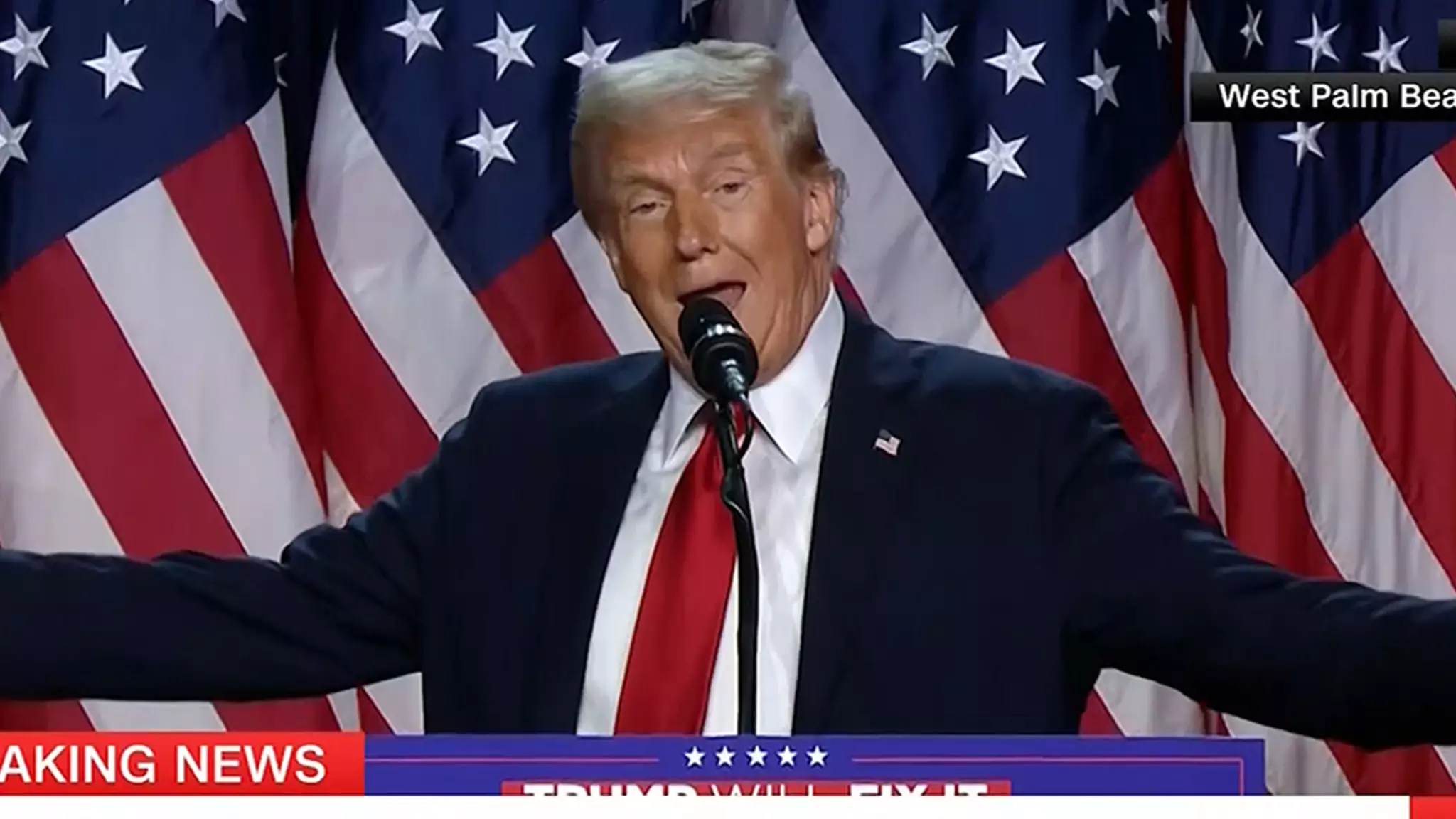Former President Donald Trump’s surprising revival in the political arena has concluded with a triumph that reshapes the landscape of American politics. Initial projections from FOX News confirmed his victory in the 2024 presidential election against Vice President Kamala Harris just before midnight Pacific Time, signaling a pivotal moment in U.S. history. Trump not only managed to secure the crucial 270 electoral votes, but he also reclaimed the popular vote, emphasizing a resurgence of support among the electorate. This outcome has reverberating implications for the Republican Party and highlights a stark polarization within the nation.
By winning this election, Trump finds himself in the unique position of becoming the first U.S. president since Grover Cleveland to serve non-consecutive terms, which adds a layer of historical significance to his presidency. The last time a president returned to the White House after a hiatus was over a century ago, marking Trump’s victory as a remarkable and unusual turn in the annals of American politics. His ascent to power draws attention not only for its novelty but also for the broader conversations it initiates regarding leadership, accountability, and the evolving nature of the electorate’s preferences.
Trump’s victory speech in West Palm Beach, flanked by Vice President-elect J.D. Vance and his wife Melania, hinted at a unified approach to healing a nation fragmented by contentious debates and divisive sentiments. Notably, the acknowledgment of figures such as Robert F. Kennedy Jr. and Elon Musk during his address indicates a broader coalition of support that transcends traditional party lines. This reveals a strategy aimed at consolidating influence across diverse voter bases, potentially hinting at policy directions and governance styles that could emerge in his next administration.
Unsurprisingly, Trump’s victory does not come without complications. His legal troubles loom large, particularly his recent conviction that positioned him as the first convicted felon ever to ascend to the presidency. This situation raises significant questions about the intersection of law and politics, especially given the scheduled sentencing that may be postponed or altered due to his electoral success. The juxtaposition of legal challenges alongside electoral victory invites critical discourse on the accountability of public figures and the robustness of democratic institutions meant to ensure fair governance.
The Impact on Congressional Dynamics
With the GOP regaining control of both houses of Congress, the implications for national policy are substantial. Trump’s administration promises to roll out initiatives that could redefine both domestic and foreign policies, focusing on issues resonant with his voter base. The upcoming legislative sessions will likely reflect the priorities that brought this coalition together, serving as a testing ground for Trump’s policy agenda. Moreover, the remaining political climate suggests that a deepening ideological divide could engender heightened tensions between party lines.
Trump’s return to the presidency ushers in a chapter of American politics that is fraught with uncertainties yet laden with potential for transformation. As the nation braces itself for what lies ahead, it remains to be seen how Trump navigates the multifaceted challenges associated with leadership, legality, and societal expectations.

